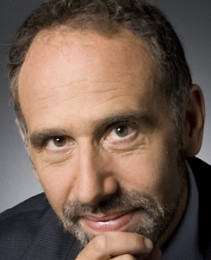The French economist Thomas Piketty has managed to accomplish a feat almost without precedent among economists in this country. He wrote a book that has made it to the top of the best seller list. Furthermore, the book is almost 700 pages long and borrows its title from Karl Marx.
The remarkable popularity of Capital in the Twenty-First Century certainly deserves a serious study of its own, but I will restrict myself to talking about the book’s substance. There are two basic stories here that can be usefully separated.

Dean Baker
The first story is about data collection. Piketty has a well-deserved reputation as one of the world’s leading experts on income inequality. He and his colleagues have mined tax records in the United States and other countries to provide a far better picture of patterns of income growth among the rich than had previously been available. It is largely because of this work that we know the extent to which income has become increasingly concentrated among the 1 percent or even the 0.1 percent over the last three decades.
Piketty adds further to our understanding by compiling data on wealth for the United States, United Kingdom, France, and several other countries dating back several hundred years. Economists will be combing through these data for insights for many years.
The second story is controversial. Piketty argues that capitalism has a tendency to lead to growing concentrations of wealth and income. He notes that both wealth and income became more evenly distributed pretty much everywhere from the start of the 20th century until the 1970s.
However, there was a turn to growing concentration since 1980, which has gone on to a greater or lesser extent in most wealthy countries. Piketty looks at this period and argues that this is a normal tendency in capitalism and that the trend toward greater equality in the middle of the last century was an anomaly associated with the disruptions from the Great Depression and two world wars. He argues that we should expect capitalism to lead to growing inequality through the rest of this century barring major policy interventions, such a tax on wealth.
Thomas Piketty argues that we should expect capitalism to lead to growing inequality through the end of this century.
This is the part of Piketty’s argument that is difficult to accept. Within our lifetimes most of us have seen a type of capitalism that did not lead to increasing inequality. It seems a bit of stretch to simply pronounce this long period as an “anomaly.”
Furthermore, there is not much logic to Piketty’s case that capitalism will inevitably lead to higher inequality. His central argument is that the rate of return on wealth (“r”) is typically larger than the growth rate of the economy (“g”), which he then concludes will lead wealth to grow more rapidly than the economy. Since the wealthy hold a disproportionate share of the wealth, Piketty concludes that the amount of their wealth will continue to grow relative to the size of the economy in decades ahead.
There have been many issues that have been raised about the basic relationship between “r” and “g,” but the most important point is that the rate of return on wealth is largely determined by policy decisions, not any intrinsic law of capitalism. For example, the main reason that workers are not getting their share of productivity growth in wage gains is that high unemployment deprives most workers of bargaining power.
We could, however, envision a world in which the government is more committed to maintaining high employment and is prepared to spend money needed to boost output and create jobs. If we were closer to full employment, wages would be somewhat higher and profits would be somewhat lower, but the economy would still be capitalist.
Similarly, if the United States took steps to reduce the value of the dollar relative to foreign currencies, it would make U.S. goods more competitive in world markets. That would reduce the downward pressure on wages facing workers today from low-cost imports. This also might lead to some redistribution from profits to wages.
Moreover, a large percentage of profits comes from government-granted monopolies in the form of copyright protection. These forms of protection allow companies to charge prices for prescription drugs, medical devices, computers, software and other products that are many times the free-market price. The country spent $360 billion on pharmaceuticals last year ($1,100 per person). It would have spent about one-tenth that much if drugs were sold in a free market.
In the last three decades, policy has been designed to make patents stronger and longer. This has redistributed hundreds of billions of dollars upward to the owners and top executives of drug companies and other beneficiaries of these protections. Reversing these policies would be a big step toward greater equality.
The list of policies that would combat inequality can be extended at some length. However, the point should be clear: there is nothing inevitable about the upward redistribution of the last three decades. It was the result of specific policies. This upward redistribution can be reversed by changing these policies.
Dean Baker is co-director of the Center for Economic and Policy Research in Washington, D.C.






0 Comments